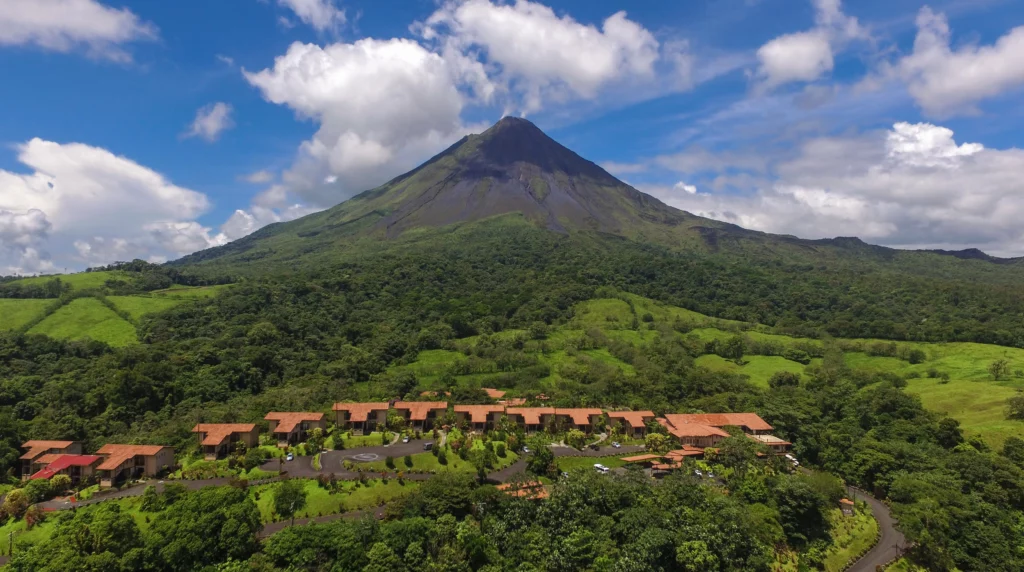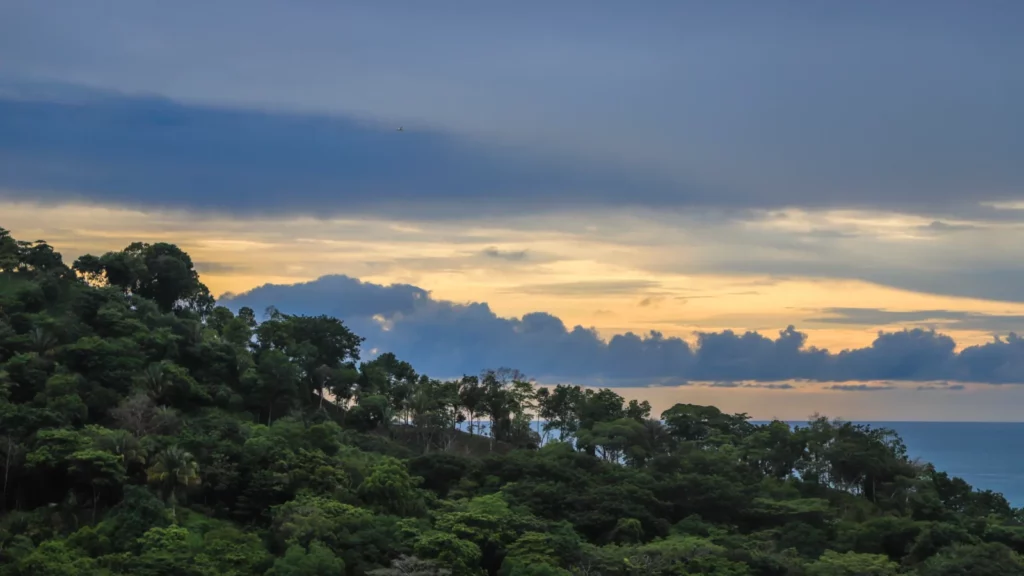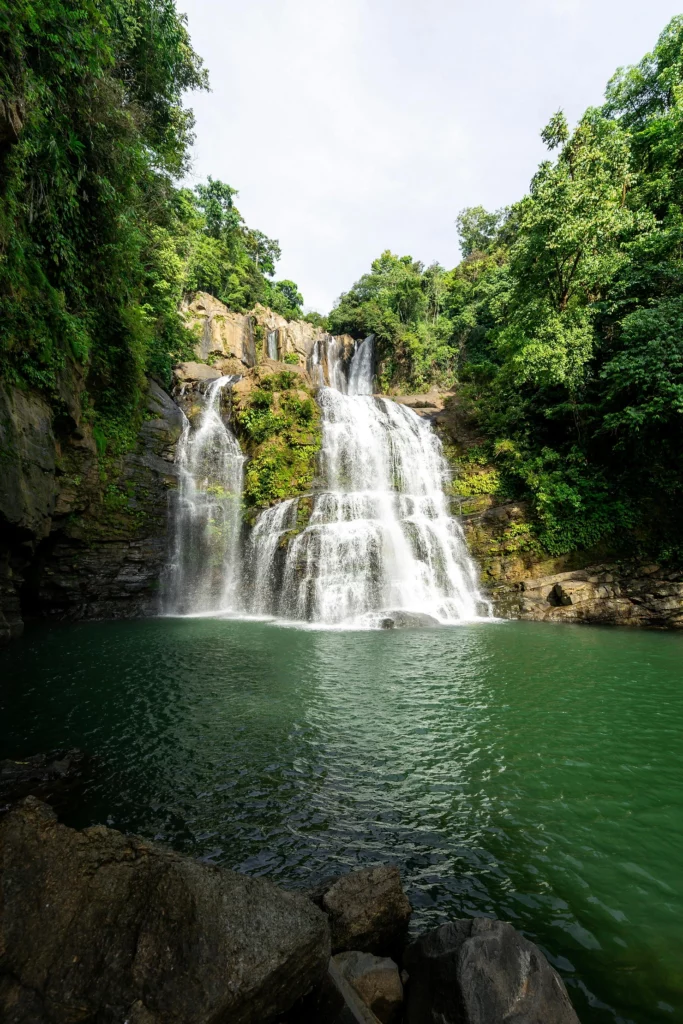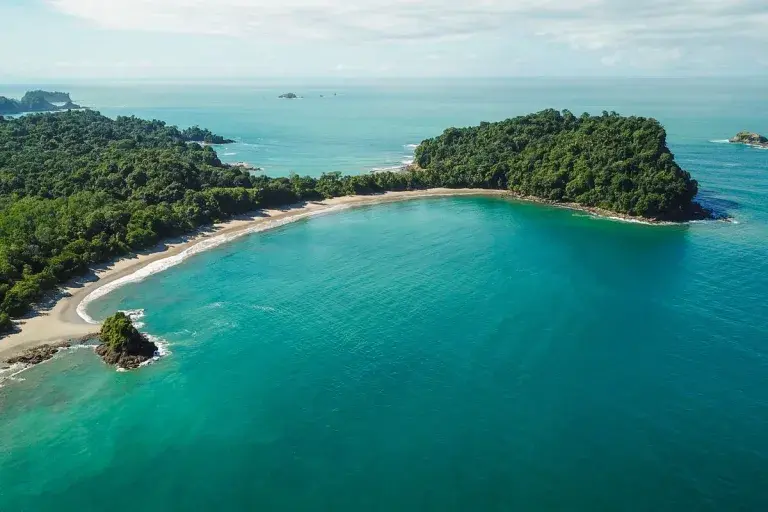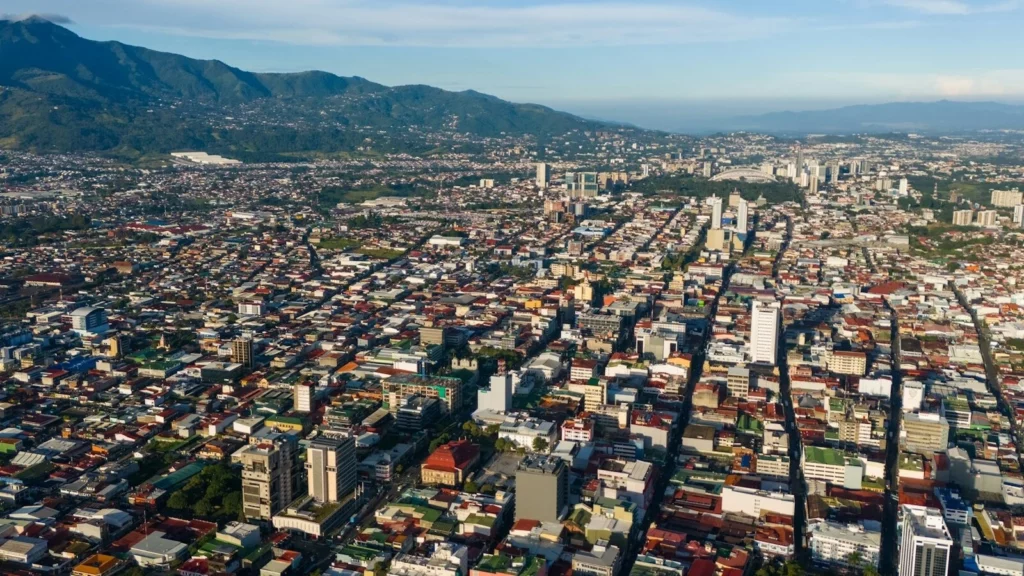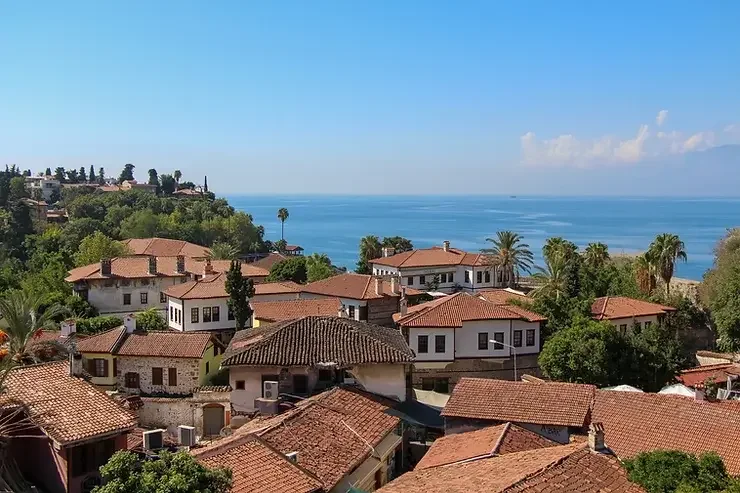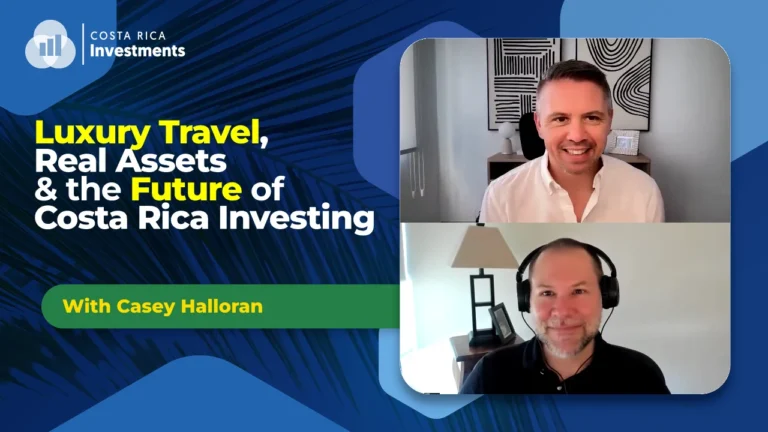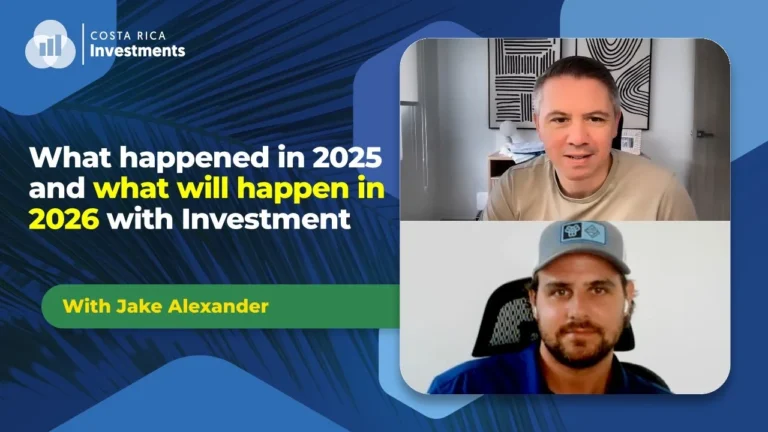Did you know that cars in Costa Rica can cost up to 50% more than identical models in the United States due to import taxes and duties? For expats navigating the journey of purchasing a vehicle in this tropical paradise, this sticker shock is just the beginning of a process filled with potential pitfalls.
Whether you’re relocating permanently or establishing a seasonal home in Costa Rica, buying a car represents one of your most significant investments—and one of your most complex logistical challenges. From navigating bureaucratic procedures in Spanish to understanding the unique aspects of the Costa Rican car market, expats face obstacles that locals don’t.
Costa Rican Vehicle Market: What Makes It Unique
New vs. Used Cars: Which Option Makes More Sense for Expats
When comparing vehicle markets between North America and Costa Rica, the first thing expats notice is the significant price difference. A new Toyota RAV4 that costs approximately $28,000 in the United States will typically sell for $42,000-$45,000 in Costa Rica. This markup occurs primarily due to import taxes, which can add 30-52% to a vehicle’s value.
Used cars present a more complex value proposition. While they cost less initially, older vehicles in Costa Rica often have higher mileage and more wear from challenging road conditions than equivalents in the US or Canada.
For expats planning to stay two to five years, purchasing a three- to five-year-old vehicle often provides the best balance of value, reliability, and future resale potential. These vehicles have already experienced their steepest depreciation but typically remain reliable for several more years.
Key considerations for expats:
- New cars provide maximum reliability but depreciate 15-20% in the first year
- 3-5 year old vehicles offer the best value for mid-term stays
- Popular Japanese and Korean brands (Toyota, Hyundai, Suzuki) maintain better resale value
- American brands typically cost less initially but depreciate faster and may have more expensive parts
The True Cost of Vehicle Ownership in Costa Rica
Beyond the purchase price, expats must budget for several recurring costs:
- Annual Marchamo (tax/insurance): This mandatory payment combines vehicle taxes and basic liability insurance. Cost varies by vehicle age and value, ranging from $200-1,000+ annually.
- Dekra inspection: Similar to emissions testing in the US, this annual inspection costs approximately $25, but potential repairs to pass can add hundreds more.
- Maintenance costs: Routine maintenance can cost 20-30% more than in the US due to import tariffs on parts. Budget $500-1,000 annually for regular maintenance.
- Fuel costs: As of early 2025, gasoline costs approximately $5.40 per gallon in Costa Rica—significantly higher than US prices.
- Road conditions impact: Costa Rica’s roads often include unpaved sections, potholes, and steep mountain passes. These conditions accelerate wear on suspensions, tires, and brakes. Budget an additional 20% for maintenance if you’ll regularly drive on rural or mountain roads.
Popular Vehicle Models That Withstand Costa Rican Conditions
The ideal vehicle for Costa Rica depends greatly on where you’ll live and drive. Your needs in San José differ dramatically from those in Guanacaste or the Southern Zone.
For urban areas (San José, Heredia, Alajuela):
- Toyota Corolla and Yaris
- Hyundai Elantra and Accent
- Suzuki Swift
These compact models navigate tight city streets, offer good fuel economy, and provide adequate ground clearance for urban obstacles.
For coastal and rural areas:
- Toyota RAV4, 4Runner, and Hilux
- Suzuki Jimny
- Mitsubishi Montero/Pajero
- Hyundai Tucson
Higher clearance, 4WD capability, and robust suspension systems make these better suited for rough roads and rainy season conditions.
Models to approach with caution:
- European luxury brands (Mercedes, BMW, Audi) have limited service centers and extremely expensive parts
- American models with specialty parts may face long delivery times when repairs are needed
- Very old vehicles (10+ years) often struggle with the extreme humidity, especially in coastal areas
Step 1: Determine Your Legal Status and Buying Options
How Different Residency Statuses Affect Your Car Buying Process
Your residency status in Costa Rica directly impacts your options for purchasing and registering a vehicle. The requirements change significantly depending on whether you’re a tourist, temporary resident, permanent resident, or citizen.
Tourists (90-day visa):
- Cannot legally register a vehicle in their name
- Must use alternative purchase methods (corporation or trusted resident)
- Limited to driving on foreign license for 90 days
Temporary Residents (Rentista, Pensionado, Inversionista):
- Can register vehicles directly in their name
- Must present DIMEX card (residency ID) and proof of status
- Required to obtain Costa Rican driver’s license after 90 days
Permanent Residents and Citizens:
- Full rights to purchase and register vehicles
- Simplified documentation requirements
- Potentially eligible for financing options through local banks
A key 2024 update for expats: Recent regulatory changes now require additional verification steps for corporations purchasing vehicles. If using a corporation (S.A. or LLC), ensure it complies with transparency requirements established in late 2023.
Car Buying Options Based on Your Expat Status
If you lack permanent residency, you have several options for acquiring a vehicle:
1. Form a Costa Rican Corporation (S.A. or LLC):
Pros:
- Legal ownership structure recognized by authorities
- Can be used for other assets and business activities
- Simplifies future sale process
Cons:
- Setup costs approximately $500-1,000
- Annual maintenance fees of $200-400
- Additional tax reporting requirements
- Recent regulatory changes have increased scrutiny
2. Expedite residency process before purchase:
Pros:
- Cleanest legal option
- Simplifies all aspects of ownership
- Establishes your legal presence in the country
Cons:
- Takes 6-12+ months to complete
- Requires qualifying for residency category
- Delays vehicle acquisition
For most expats staying longer than a year, establishing a corporation represents the best balance of legality, convenience, and risk management if residency hasn’t yet been obtained.
Step 2: Set a Realistic Budget for Your Costa Rican Vehicle
How to Calculate Your All-in Vehicle Budget
The purchase price represents only 70-80% of your initial investment when buying a car in Costa Rica. Create a comprehensive budget including:
Initial Purchase Costs:
- Vehicle price: $8,000-$45,000+ depending on type and age
- Registration transfer: $200-500
- Corporation setup (if needed): $500-1,000
- Legal fees: $200-400
- Vehicle inspection: $100-200
Annual Recurring Costs:
- Marchamo (tax/insurance): $200-1,000+
- Dekra inspection: $25 (plus potential repairs)
- Comprehensive insurance: $300-800
- Regular maintenance: $800- 1,500
- Corporation maintenance (if applicable): $200-400
Emergency Fund:
- Road condition repair contingency: $500-1,000
- Accident deductible reserve: $500-1,000
For a reliable used vehicle, most expats should budget $10,000-15,000 for the purchase plus $2,000-3,000 for first-year costs. New vehicle purchases typically require $30,000-50,000 plus $3,000-5,000 for first-year costs.
Budget planning tip: The Costa Rican vehicle market sees less seasonal variation than in North America. However, November and December often have slightly higher prices as new Marchamo payments come due, while February and March may offer better values.
Financing Options for Expats in Costa Rica
Financing a vehicle in Costa Rica presents significant challenges for recent expats:
Bank loans for foreigners:
- Typically require 2+ years of permanent residency
- Interest rates 12-18% (significantly higher than US/Canadian rates)
- Down payments of 30-50% commonly required
- Extensive documentation including local credit history and income verification
Alternative financing approaches include dealer financing (available at major dealerships with rates 10-20%), private loans from Costa Rican banks for established residents with strong local banking relationships and seller financing (uncommon but occasionally available from dealerships).
Because of these challenges, most expats find it preferable to pay cash for vehicles, often by transferring funds from their home country. If financing is necessary, established dealerships offer the most straightforward options, though at higher interest rates than many North Americans are accustomed to.
Step 3: Research Trustworthy Dealerships and Sellers
Authorized Dealerships vs. Independent Sellers
When buying a car in Costa Rica, your choice of seller significantly impacts your risk exposure and purchase experience.
Authorized Dealerships (Agencias):
Pros:
- Legal guarantees and warranties
- Verified vehicle history
- Financing options
- After-sale support
- Less risk of hidden liens or legal issues
Cons:
- Higher prices (10-20% premium over private sales)
- Less negotiating flexibility
- Limited inventory of used vehicles
- Primarily located in the Central Valley
Independent Used Car Lots:
Pros:
- Lower prices than authorized dealerships
- Larger selection of used vehicles
- Some negotiation flexibility
- Often more English-speaking staff than private sellers
Cons:
- Variable reputation and reliability
- Limited warranties (if any)
- Less verification of vehicle history
- Some operate in legal gray areas
Private Sellers:
Pros:
- Lowest prices
- Direct communication with previous owner
- Maximum negotiation potential
- May learn actual vehicle history
Cons:
- Highest risk of fraud or misrepresentation
- No warranties or guarantees
- Language barriers
- Potential for undisclosed accidents or issues
- Time-consuming inspection and verification process
Red flags to watch for with any seller:
- Reluctance to allow independent inspection
- Missing or incomplete documentation
- Pressure to close quickly or leave deposits
- Vehicles lacking recent Riteve inspection
- Unwillingness to meet at seller’s actual business location
- Cash-only demands without receipts
Where to Find Reliable Used Cars in Costa Rica
For expats seeking quality vehicles, several resources stand out:
Online Marketplaces:
- Encuentra24.com – Largest classified site with extensive vehicle listings
- Crautos.com – Dedicated auto marketplace with dealer and private listings
- Facebook Marketplace – Increasingly popular, especially for lower-priced vehicles
Expat Community Resources:
- Regional expat Facebook groups often feature vehicles from departing expats
- Association of Residents of Costa Rica (ARCR) maintains member marketplace boards
Physical Locations include multi-dealer auto malls in Lindora and San Rafael de Alajuela, La Sabana area in San José (concentration of dealerships) and weekend car fairs in larger cities (particularly San José).
Tip for expat buyers: Build in time for your search. While it’s tempting to purchase quickly after arrival, spending 2-3 weeks researching options typically results in better value and fewer problems. Many expats report finding significantly better deals after gaining local knowledge and establishing initial connections.
Step 4: Conduct Thorough Vehicle Inspections
Pre-Purchase Inspection Checklist for Costa Rican Conditions
Costa Rica’s climate and road conditions create unique vehicle wear patterns. Before purchasing, conduct or hire a professional for this inspection:
Exterior inspection: Check wheel wells and undercarriage for rust (critical in coastal areas), examine suspension components for damage from rough roads, test all lights and electrical components (humidity accelerates electrical issues), inspect glass for chips (common on gravel roads), check door and window seals (crucial for rainy season), and verify tire condition and age (heat accelerates deterioration).
Mechanical inspection: Test cooling system thoroughly (overheating common in mountain driving), inspect brake components (wear accelerates on mountain roads), check transmission fluid quality (heat and hills stress transmissions), verify air conditioning, test four-wheel drive systems if applicable, and inspect for evidence of flood damage (increasingly common).
Documentation verification:
- Match VIN numbers on all documents and vehicle components
- Verify Dekra/Riteve inspection history
- Check for recall compliance
- Confirm odometer reading against service records
Professional inspection: For vehicles over $5,000, investing $100-200 in a professional pre-purchase inspection by a mechanic familiar with your specific make can save thousands. Many expats recommend obtaining inspections from brand-specific shops rather than the seller’s recommended mechanic.
How to Verify Vehicle History in Costa Rica
Unlike the US and Canada with their comprehensive Carfax-style reports, Costa Rica requires more detective work to uncover a vehicle’s history.
Registro Nacional verification:
Visit https://www.rnpdigital.com/shopping/login.jspx where you can search by license plate or VIN. It costs approximately $10, and will reveal who is the registered owner, liens, outstanding loans, registration status.
What the report won’t show: The Registro Nacional doesn’t display accident history, service records, or odometer verification.
Additional verification steps: You can also check with COSEVI (traffic authority) for outstanding tickets or infractions, verify Marchamo payment status through INS website and request Dekra inspection history when available.
Liens and outstanding debts: The Registro Nacional search is essential as undisclosed liens transfer with the vehicle, and if you’re using a lawyer for the purchase, they should conduct this verification. Some debts, including traffic violations, can be attached to vehicles rather than owners
Services for expats: Several law firms and vehicle consultants offer comprehensive verification services for $100-300. “Car shopping” services provide inspection, history verification, and negotiation support. These services typically pay for themselves through better negotiations and risk reduction
Step 5: Purchase and Registration Process
Essential Documents Needed to Purchase a Vehicle
Gathering the correct documentation before beginning the purchase process saves significant time and frustration:
For the buyer (documents you need):
- Passport and entry stamp (for tourists)
- DIMEX card (for residents)
- Proof of legal address in Costa Rica
- Costa Rican driver’s license or valid foreign license
- Tax ID number (if using a corporation)
- Corporation documents (if applicable)
For the seller/vehicle (documents to request):
- Original vehicle title (Derecho de Circulación)
- Recent Dekra inspection certificate
- Proof of paid Marchamo (tax/insurance)
- Original bill of sale from previous purchase
- Verification of no outstanding traffic tickets
- Maintenance records when available
For the transaction: Get a bill of sale (in Spanish), transfer documents for Registro Nacional, proof of payment/funds transfer and notary certification.
Translation requirements: Note that all official documentation must be in Spanish, and that documents not in Spanish may require official certification.
Step-by-Step Registration Transfer Process
The vehicle transfer process in Costa Rica involves several precise steps that must be followed in order:
1. Preliminary Agreement and Deposit (optional): You can draft a written agreement specifying conditions and timeline, with–typically 10% deposit to hold vehicle. This agreement should include inspection contingencies, and is valid for a specified time period (usually one to two weeks).
2. Secure Legal Representation: Hire a lawyer/notary specialized in vehicle transfers, you can budget $200-400 for standard services. Confirm they will handle Registro Nacional submission and ensure they verify liens and legal status.
3. Document Verification Phase: Lawyer verifies all documents are in order, and checks for irregularities in vehicle history.
4. Transfer Documentation Preparation: Once everything is confirmed, the lawyer will draft transfer documents for signature, that will be notarized. Payment processing would ideally happen through traceable means.
5. Registro Nacional Submission: Lawyer submits documents to Registro Nacional, pays transfer taxes (1.5% of registered vehicle value). Allow one to five business days for processing.
6. Final Documentation Delivery: When you receive new Derecho de Circulación, you should update Marchamo information, obtain new license plates (if necessary) and get final receipt for taxes and transfer fees.
Common delays and how to avoid them:
- Incomplete documentation (verify all documents before notary meeting)
- Outstanding tickets or liens (conduct thorough pre-purchase verification)
- Tax discrepancies (verify Marchamo payment status)
- Registro Nacional backlogs (common in December)
Timeline expectations: While a straightforward transfer can be completed in three to five business days, it’s wise to allow two to three weeks for the entire process from inspection to final documentation.
Step 6: Obtain Required Insurance
Mandatory vs. Optional Insurance Coverage
Costa Rica’s vehicle insurance system combines mandatory government coverage with optional private insurance. Mandatory Marchamo Coverage includes basic liability insurance (extremely limited). Coverage limits of approximately $20,000 for injuries, minimal property damage coverage, no coverage for your vehicle. This coverage is included in annual Marchamo payment. Recommended Additional Coverage can include:
- Collision/Comprehensive (Cobertura A): Covers damage to your vehicle, typically has a deductible of 10-20%, it’s available through private insurers including INS, MAPFRE, and Oceánica and has a cost factor of 2-5% of vehicle value annually.
- Extended Liability (Cobertura C/D/L): Increases liability coverage beyond basic Marchamo limits. Protects assets from liability claims, and cost is based on coverage limits, typically $150-400 annually.
- Roadside Assistance: Towing and emergency services are critical in remote areas, and has added cost of $50-200 annually depending on coverage area
- Medical Payments/Personal Injury: Covers medical costs for you and passengers. Supplements Costa Rica’s universal healthcare system and costs around $100-300 annually.
Insurance coverage comparison factors: When considering your options check deductible amounts (higher deductibles lower premiums), claim processing reputation (INS has widest network but slower processing), English-language support availability and whether repairs are reimbursed or paid directly.
For most expats, a comprehensive policy with INS or one of the private insurers provides the best balance of coverage and cost. Expect to pay $500-1,000 annually for full coverage on a mid-range vehicle.
Step 7: Complete the Dekra Inspection Process
Preparing Your Vehicle
The Dekra inspection (similar to emissions or safety inspections in other countries) represents a significant hurdle for many vehicle owners in Costa Rica. Being well-prepared can save you multiple visits and unnecessary repairs.
Scheduling your inspection: Book appointments online at Dekra, schedule two weeks before your deadline to allow time for repairs. Morning appointments typically involve shorter wait times
Pre-inspection vehicle checklist:
Documentation required: Vehicle registration (Derecho de Circulación), previous Dekra certification, and payment for inspection (approximately $25)
Lighting and electrical: All exterior lights functional (headlights, brake lights, turn signals), horn working properly, windshield wipers operational with adequate fluid, dashboard warning lights functioning correctly
Braking system: Brake pads with adequate material remaining (3mm minimum), no leaking brake fluid, emergency brake functioning properly, and even braking (no pulling to either side).
Emissions system: Engine running without visible smoke, catalytic converter present and functioning, no check engine light on dashboard.
Suspension and steering: No excessive play in steering wheel, shock absorbers in good condition, ball joints and tie rods without excessive wear, and no leaking fluids from any component.
Body and safety elements: Functioning seat belts for all positions, no excessive rust or body damage, windshield without cracks in driver’s field of vision, and mirrors intact and properly adjusted.
Common failure points to address before inspection:
- Emissions issues (particularly on older vehicles)
- Brake pad thickness (especially in mountain areas)
- Suspension wear (common on vehicles driven on rough roads)
- Light functionality (humidity affects electrical systems)
- Windshield cracks (frequent from gravel roads)
Pre-inspection tip: Many mechanics offer pre-inspections for $30-50 that identify potential failure points before your official test. This service typically pays for itself by avoiding the inconvenience of failed inspections.
What Happens if Your Car Fails Inspection
Despite preparation, approximately 30% of vehicles fail their first Riteve inspection. Understanding the resolution process helps minimize stress and expenses.
After a failed inspection you’ll receive a detailed report of failed items. Vehicles with minor failures can be driven legally for 30 days, critical safety failures may result in immediate driving prohibitions, first reinspection is free if completed within 30 days.
Step 8: Maintain Your Vehicle for Costa Rican Conditions
Seasonal Maintenance Considerations
Costa Rica’s climate presents unique challenges that require adapting your maintenance schedule to protect your investment.
Rainy season preparations (May-November): Inspect and replace wiper blades (6-month lifespan typical), verify brake system functionality (wet roads increase stopping distance), apply anti-rust treatments to vulnerable areas, check tire tread depth (minimum 4mm recommended for wet conditions), and test battery (heat and humidity accelerate deterioration).
Dry season maintenance (December-April): Check cooling system thoroughly (overheating more common), inspect dust boots on CV joints and suspension components, replace cabin air filter (dust increases during dry season), monitor tire pressure more frequently (heat increases pressure) and verify brake and clutch fluid quality (absorbs moisture over time).
Regional considerations
Coastal areas: Do a quarterly underbody washing to remove salt, bi-annual anti-corrosion treatments, and do AC system maintenance every 6 months.
Mountain regions: Do more frequent brake inspections (every 5,000km), transmission fluid changes at 30,000km (rather than standard 50,000km), and do suspension component inspection every 10,000km.
Finding Reliable Mechanics as an Expat
Building a relationship with trustworthy mechanics represents one of the most valuable assets for expat vehicle owners.
Good sources for mechanic recommendations include Expat Facebook groups for your specific region, dealership service departments (for newer vehicles), and local expat associations.
Fair pricing expectations:
- Labor rates: $20-40 per hour (vs. $90-150 in the US)
- Parts: 20-50% more expensive than US prices
- Diagnostic fees: $30-60 typical
- Total maintenance costs typically 10-20% higher than US equivalent
Recommended mobile mechanics: In more remote expat communities, mobile mechanics provide service at your home. While convenient, ensure they have proper tools and insurance before allowing major work.
Step 9: Plan for Future Resale or Vehicle Export
Maximizing Resale Value in the Costa Rican Market
Whether you plan to sell your vehicle when leaving Costa Rica or simply upgrade in the future, maintaining resale value requires specific strategies in this market.
Documentation maintenance for optimal resale: Keep all service records organized and in Spanish when possible, maintain receipts for significant parts and repairs, document inspections and resolutions, and save Marchamo payment receipts.
Vehicle modifications to avoid:
- Non-standard engine modifications
- Extreme suspension changes
- Window tinting that exceeds legal limits
- Aftermarket body kits
- Non-standard wheel/tire combinations
Timing the sale: January-March typically represents strongest selling season, and you should avoid December (when new Marchamo payments come due). Allow one to three months for private party sales, as dealer trade-ins offer convenience but 10-20% less value.
Tip for maximizing value: Vehicles with detailed service histories from recognized shops typically command 10-15% higher resale prices. Invest in a dedicated folder and request documentation for all services.

